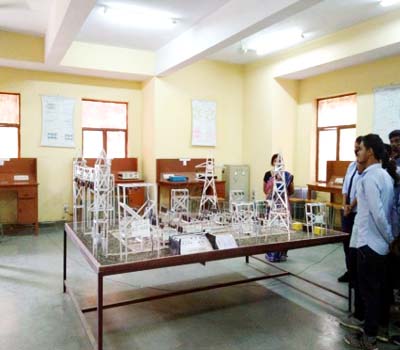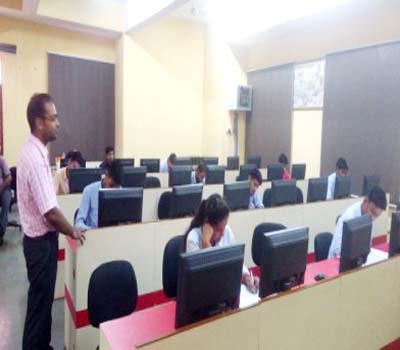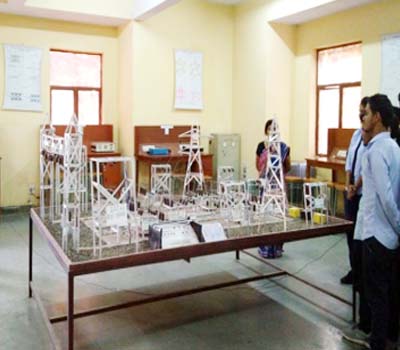Laboratories Map in the Computer Center Block:
| Lab Name | Location | In-Charge | Lab Assistance | ||
| 1 | Measurement Lab | First Floor | Shilpa Agarwal | Satyapal | |
| 2 | Power Electronics | First Floor | Jitendra singh | S.K Maurya | |
| 3 | CBPS Lab | Ground Floor | Rahul Srivastava | Govind Singh | |
| 4 | Machine Labr | Ground Floor | Subhash kumawat | Govind Singh |
|
MEASUREMENT LAB |
POWER ELECTRONICS LAB |
CBPS LAB |
MACHINE LAB |
MEASUREMENT LAB:
This is one of the most important Electrical lab which gives students hand s on training to develop their skills. In this lab student’s work on various bridge kits, on CRO, speed control of d.c motor, PV cell, load cells, stroboscopic method & various other measuring instruments. Student’s themselves make connection & take the readings of Two – Wattmeter method; Measuring earth Resistance by various methods.
POWER ELECTRONICS LAB
Power electronics studies the application of semiconductor devices to the conversion and control of electrical energy. The field is driving an era of rapid change in all aspects of electrical energy. The Power Electronics Laboratory Course—one of only a few offered at Sobhasaria Engineering College—seeks to enhance general material with practices. Measurement method, and with the design and operation of several common circuits relevant to the field of power electronics. The Power Electronics Laboratory is used by UG and PG students with the course on the Basics of Power Electronics Converters. This lab has oscilloscopes. Signal generator. Millimeters. Soldering stations. LCR meters and power electronic modules to carry out experiments.
CBPS LAB
This is most important Electrical lab which provides students to develop their skills of Electrical circuits by software’s. In this lab, we have MATLAB software, multisim software, with the use of which students model & simulate various electrical circuits and analyze the results.
Machine LAB
This is the core branch lab without which the B.Tech. degree in electrical engineering is complete. This lab has various AC and DC machines (motors). Generators, motors (generator set), synchronized machines, induction motors, and transformers Also, various meters (ammeters, voltage meters, and Watt meters) can be studied. Students make connections themselves, run the machines, and take the readings, due to which they also become familiar with theory and concepts.





